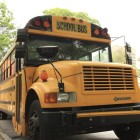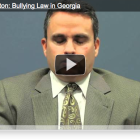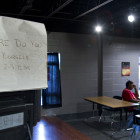
Georgia D.A.: Bullying May Lead to Life of Crime
|
Bullies may not have committed any crimes while bullying, but officials in one south Georgia county say bullying may lead to a life of crime. Dougherty County, Ga., District Attorney Greg Edwards told The Albany (Ga.) Herald that, while there is no specific crime for bullying, “about 25 percent of cases we come across relate to bullying to some extent.” Edwards went on to say he believes bullies often, “start in juvenile court and graduate to more serious crimes.”
According to Dougherty County’s juvenile prosecutor, Andre Ewings, those crimes can vary greatly. “It can be almost anything,” she told The Herald. “It can be a simple battery to as serious as an aggravated assault. It may also be terroristic threats.” Today, much of that bullying is done online through social networking sites like Facebook. Ewings also said she believes bullies tend to get in more trouble than other children.








